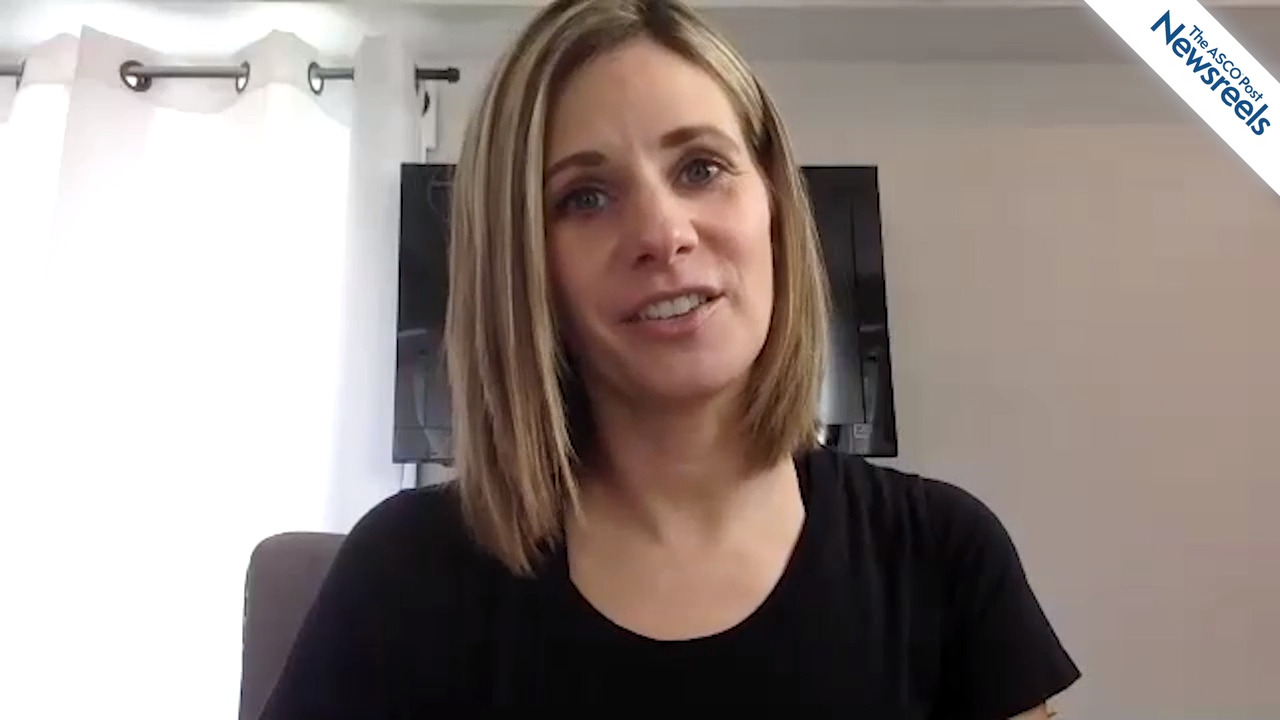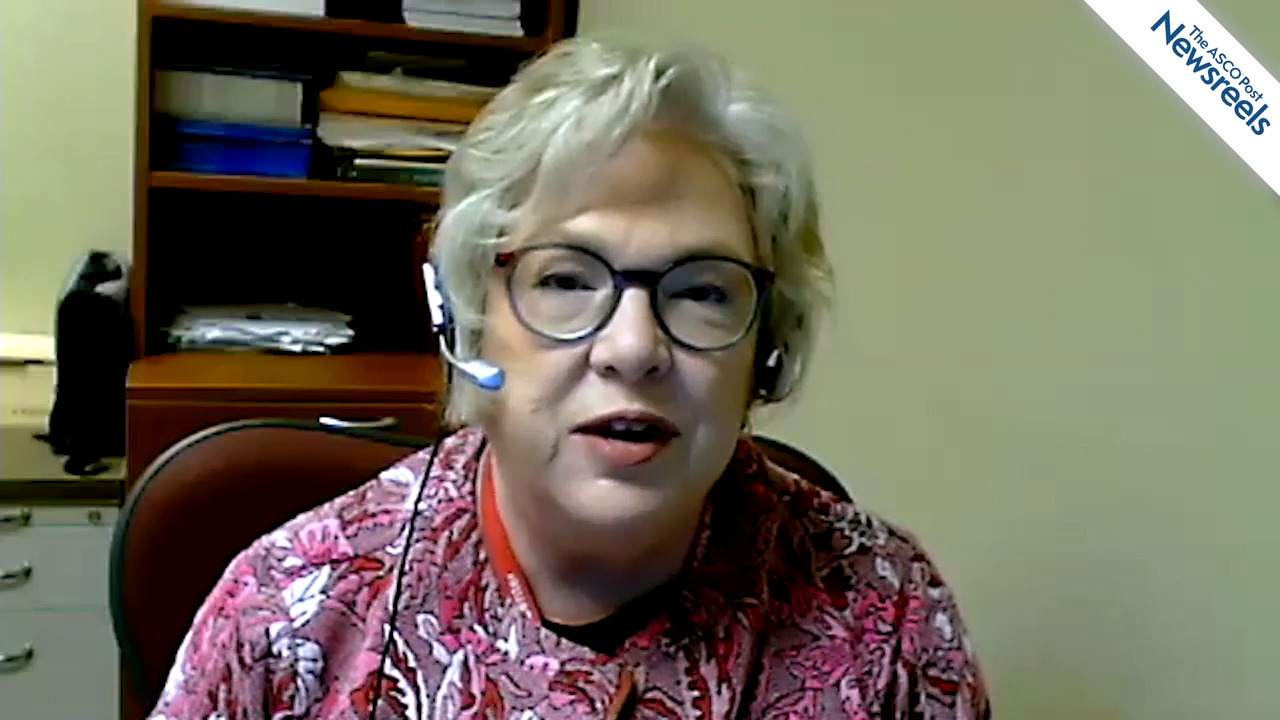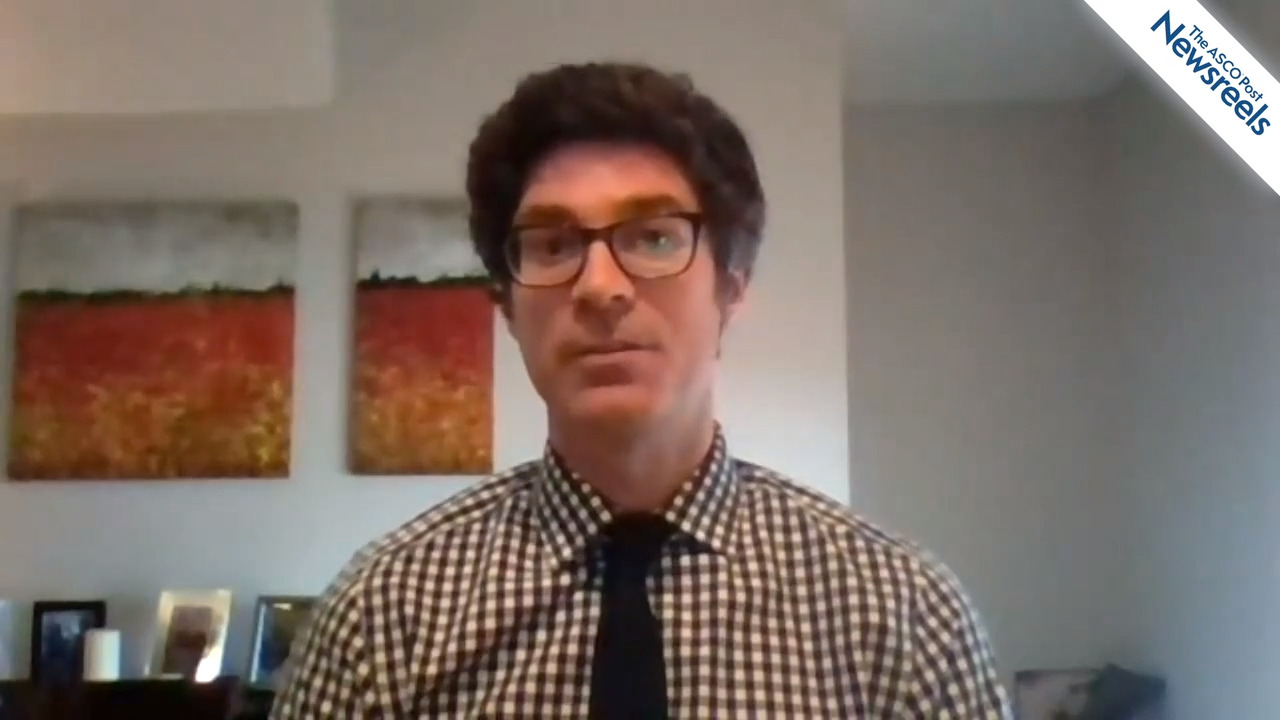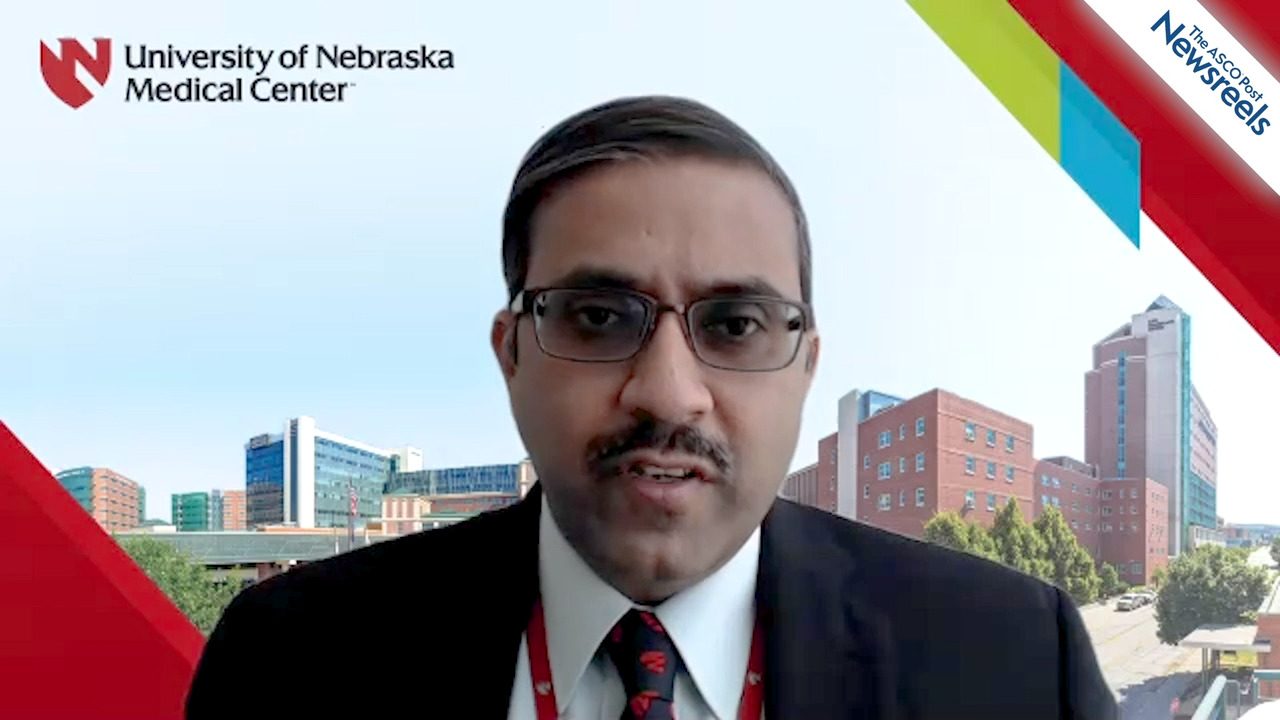Pam Baker DeGuzman, PhD, on Assessing Distress During Telemedicine Visits With Rural Survivors of Head and Neck Cancer
NCCN 2020 Virtual Annual Conference
Pam Baker DeGuzman, PhD, of the University of Virginia School of Nursing, discusses her study findings on the use of the NCCN Distress Thermometer, which identified and addressed distress in patients treated for head and neck cancer who were then referred to speech pathologists, lymphedema specialists, and social workers (Abstract HSR20-082).
The ASCO Post Staff
Karen Wonders, PhD, of Wright State University, discusses the safety and efficacy of exercise during cancer treatment in minimizing toxicities and addressing the short- and long-term effects of cancer therapy. Dr. Wonders suggests that exercise becomes a standard of care for patients with cancer (Abstract HSR20-110).
The ASCO Post Staff
Elizabeth Reed, MD, of the University of Nebraska Medical Center Fred & Pamela Buffett Cancer Center, talks about how she and her team sought to help rural oncology providers recognize and address the physical, psychosocial, and decision-making needs of young women with breast cancer by implementing clinical pathways and treatment guidelines (Abstract BPI20-014).
The ASCO Post Staff
Christopher D'Avella, MD, of Fox Chase Cancer Center, discusses the impact of his institution’s oncologic urgent care center, designed to triage patients and prevent hospital admissions. Patients who presented to the direct referral unit had lower health-care expenses vs those who went to the emergency department (Abstract HSR20-081).
The ASCO Post Staff
William J. Gradishar, MD, of Robert H. Lurie Comprehensive Cancer Center of Northwestern University, discusses the “4R Model” (Right Information, Care, Patient, and Time) which has proved to be a promising method for patient self-management. Patient care sequence plans markedly improved several aspects of patient self-management, as well as delivery of multimodality care (Abstract BPI20-017).
The ASCO Post Staff
Apar Kishor Ganti, MD, of the University of Nebraska Medical Center, discusses his study findings, which show that alectinib was associated with longer treatment persistence and comparable adherence to other ALK inhibitors (Abstract HSR20-084).





